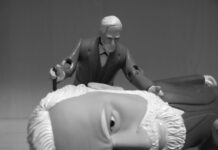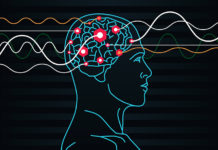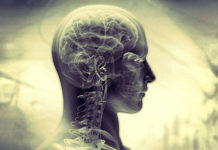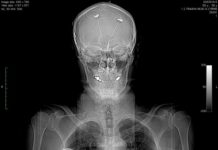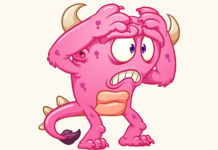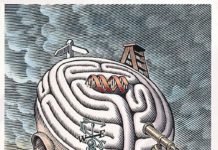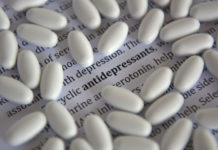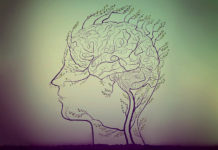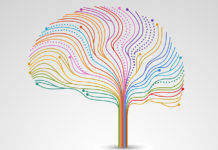“Virtual Autism” May Explain Explosive Rise in ASD Diagnoses
New clinical case studies have found that many young children who spend too much screen time—on TV’s, video games, tablets and computers—have symptoms labeled as “autism.” When parents take away the screens for a few months the child’s symptoms disappear.
The Door to a Revolution in Psychiatry Cracks Open
The Ministry of Health in Norway has ordered its four regional health authorities to offer medicine-free treatment in psychiatric hospitals. A six-bed ward in Tromso, which is in the far north of Norway, is now providing such care.
The Effects of Practicing Psychotherapy on Therapists’ Personal Lives
A new study, published in Psychotherapy Research, explores how having a career in psychotherapy affects therapists’ personal lives.
Neurofeedback is Not For Everyone: The Dangers of Neurology
One thing I noticed, from the moment that I stepped out of my psychiatrist’s office, was how strangely blank and yet clear my mind was. I felt surprisingly calm and relaxed, and I decided to go back for another treatment the next week. What I couldn’t have known then was that after that next “treatment,” life would be completely destroyed for me.
Reflections on Being a Therapist
Three-and-a-half years ago I quit my career as a psychotherapist. I’d done it for ten years in New York City and had given it my all. It was a career that chose me, loudly, when I was 27 years old. I learned a huge amount from it and I believe I was helpful to a lot of people. It also represented a vital stage in my life. But then the time came to leave. That also came as a sort of revelation.
How Psychological Injuries Cause Physical Illness—And How Therapy Can Heal It
How does experiencing physical abuse as an 8 year old shorten one's lifespan? How do insulting words turn into diabetes? Or sexual abuse trigger a heart attack 50 years in the future? Emotional wounds can damage DNA and produce a huge web of destructive effects, but therapy can turn the process around.
Researcher Acknowledges His Mistakes in Understanding Schizophrenia
Sir Robin Murray, a professor at the Institute of Psychiatry, Psychology, and Neuroscience in London, states that he ignored social factors that contribute to ‘schizophrenia’ for too long. He also reports that he neglected the negative effects antipsychotic medication has on the brain.
Study Finds ADHD Drugs Alter Developing Brain
A new study, published in the JAMA Psychiatry, investigates the effect of stimulant ‘ADHD’ drugs on the brains of children and young adults. The...
Why the Rise of Mental Illness? Pathologizing Normal, Adverse Drug Effects, and a Peculiar...
In just two decades, pointing out the pseudoscience of the DSM has gone from being an “extremist slur of radical anti-psychiatrists” to a mainstream proposition from the former chairs of both the DSM-3 and DSM-4 taskforces and the director of NIMH. In addition to the pathologizing of normal behaviors, another explanation for the epidemic — the adverse effects of psychiatric medications — is also evolving from radical to mainstream, thanks primarily to the efforts of Robert Whitaker and his book Anatomy of an Epidemic. While diagnostic expansionism and Big Pharma certainly deserve a large share of the blame for this epidemic, there is another reason.
Enslaved to Abilify
A very gifted and compassionate friend recently said that she feels enslaved to Abilify - that she has tried to taper off it several times but always ends up slipping into an extreme state, no matter how slow she tapers. She said this repeated experience makes her feel like a slave, because she has to go back on the drug to stop the very intense extreme state induced whenever she tries to stop taking it.
Peer-Support Groups Were Right, Guidelines Were Wrong: Dr. Mark Horowitz on Tapering Off Antidepressants
In an interview with MIA, Dr. Horowitz discusses his recent article on why tapering off antidepressants can take months or even years.
ADHD Diagnosis Based on “Illogical Rhetoric,” Analysis Claims
In a philosophically rigorous article, Spanish researcher Marino Pérez-Álvarez examines the logic of attention-deficit hyperactivity disorder (ADHD).
Trauma, Psychosis, and Dissociation
Recent years have seen an influx of numerous studies providing an undeniable link between childhood/ chronic trauma and psychotic states. Although many researchers (i.e., Richard Bentall, Anthony Morrison, John Read) have been publishing and speaking at events around the world discussing the implications of this link, they are still largely ignored by mainstream practitioners, researchers, and even those with lived experience. While this may be partially due to an understandable (but not necessarily defensible) tendency to deny the existence of trauma, in general, there are also certainly many political, ideological, and financial reasons for this as well.
New Book Deconstructs Ideology of Cognitive Therapy
CBT forwards a hyper-rational perspective of human suffering that complements a managerialist culture of efficiency and institutionalization in the Western world.
Adverse Effects: The Perils of Deep Brain Stimulation for Depression
Hundreds of people have been given remote control deep brain stimulation implants for psychiatric disorders such as depression, OCD and Tourette’s. Yet DBS specialists still have no clue about its mechanisms of action and research suggests its hefty health and safety risks far outweigh benefits.
Helping Children to Overcome OCD: 6 Creative Strategies for Parents
Here, Dr. Ben Furman offers a creative approach to helping children who struggle with OCD. Explaining why behaviors like reasoning, reassuring, and superstitious rituals don’t work, he suggests engaging alternatives that teach kids how to manage their “worry monster” and make sense of their distressing experience.
Mental Health Concerns Not “Brain Disorders,” Say Researchers
The latest issue of the journal Behavioral and Brain Sciences features several prominent researchers arguing that mental health concerns are not “brain disorders.”
New Study Concludes that Antidepressants are “Largely Ineffective and Potentially Harmful”
A new study published in Frontiers in Psychiatry concludes that “antidepressants are largely ineffective and potentially harmful.”
Healing From Schizophrenia
My experience is that living in a psychosis forces your brain to "stretch" — you develop extra capacity to handle things. I was pretty much living a normal life, even working some of the time, while having all of my psychotic problems. After the psychoses faded away, I no longer needed to fight monsters, but I still had that extra capacity left. After 11 periods of psychosis, my brain has never worked as well as it does now.
Bipolar Diagnosis Linked to Childhood Adversity
With the ties between traumatic childhood experiences and mental health issues, should we continue to focus on biological approaches?
Who Gets to Define “Peer Support?”
The definition of “peer support” should be straightforward. But over the years, “peer support” seems to have morphed into “peer specialist” — or, to put it more bluntly, psychiatric survivors’ experiential knowledge has been co-opted by the system. How does peer-developed peer support differ from the peer staff model? And what can we do about this?
New Data on the Adverse Effects of Meditation and Mindfulness
Study reports on the less-examined findings of difficult and painful meditation-related experiences.
8 Years of Mental Health Research Distilled to 4 Infographics
Pictures are worth a thousand words. So I’ve chosen pictures to distill the mountain of mental health research I’ve examined over the last eight years. Three infographics summarize research on psychiatric drugs, and one asserts why I think Integrative Mental Health is the best path available for mental health recovery.
Why We Must Strike the Terms “High Functioning” and “Low Functioning” from Our Vocabulary
As I have various discussions about mental health and disability on the internet, I am disturbed at how many people continue to use the terms “high functioning” and “low functioning” when referring to people with psychiatric or other disabilities. I have heard people refer to their family members as “low functioning.” I have seen these terms used by advocates to bully and discredit other advocates who critique calls for increased levels of involuntary treatment as “high functioning” individuals who don’t know what they’re talking about.
Are Emotional Disorders Really Disorders of Love?
Could the whole array of psychiatric diagnostic categories, to the extent that they have any validity at all, be expressions of the failure to love and to accept love? Do successful psychotherapies really work by means of the therapist’s ability to encourage people to experience love through how positively he or she relates to them?



